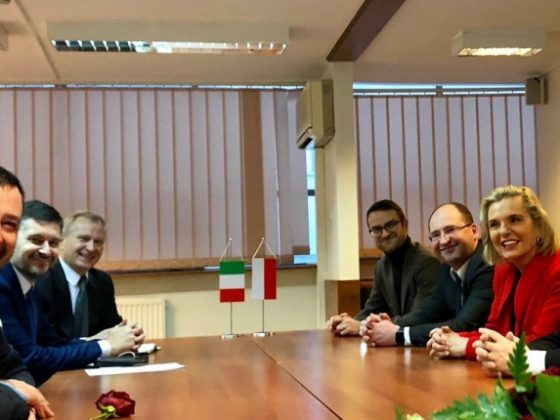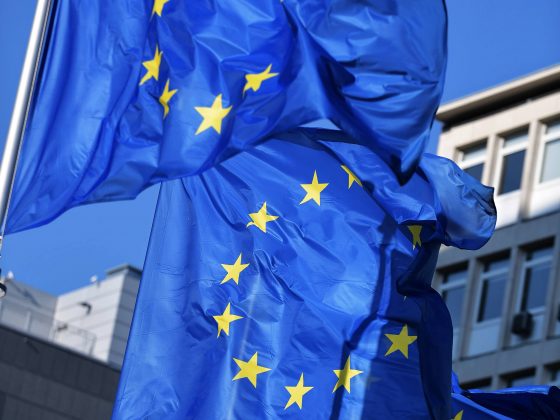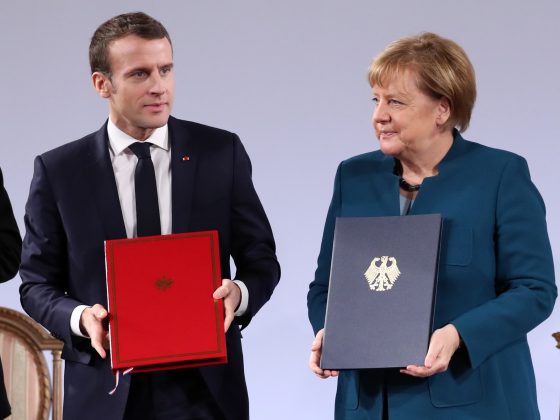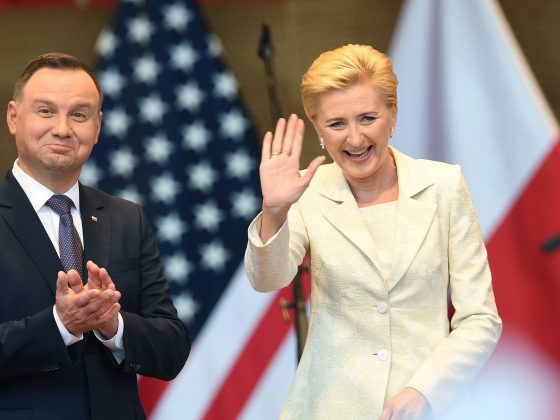This year we celebrate the 100th anniversary of the renewal of diplomatic relations between Poland and the Holy See, the establishment of which was possible after Poland had regained its independence in 1918. This anniversary is an excellent opportunity to reflect upon the role and importance of these relations, especially since religious issues remain a major topic of discussions – particularly in European countries. This debate consists of both identity issues traditionally associated with Christian roots, and the role of the institutions of the Catholic Church – which continues to have a significant influence in a secularized world confronted by Islamic believers.
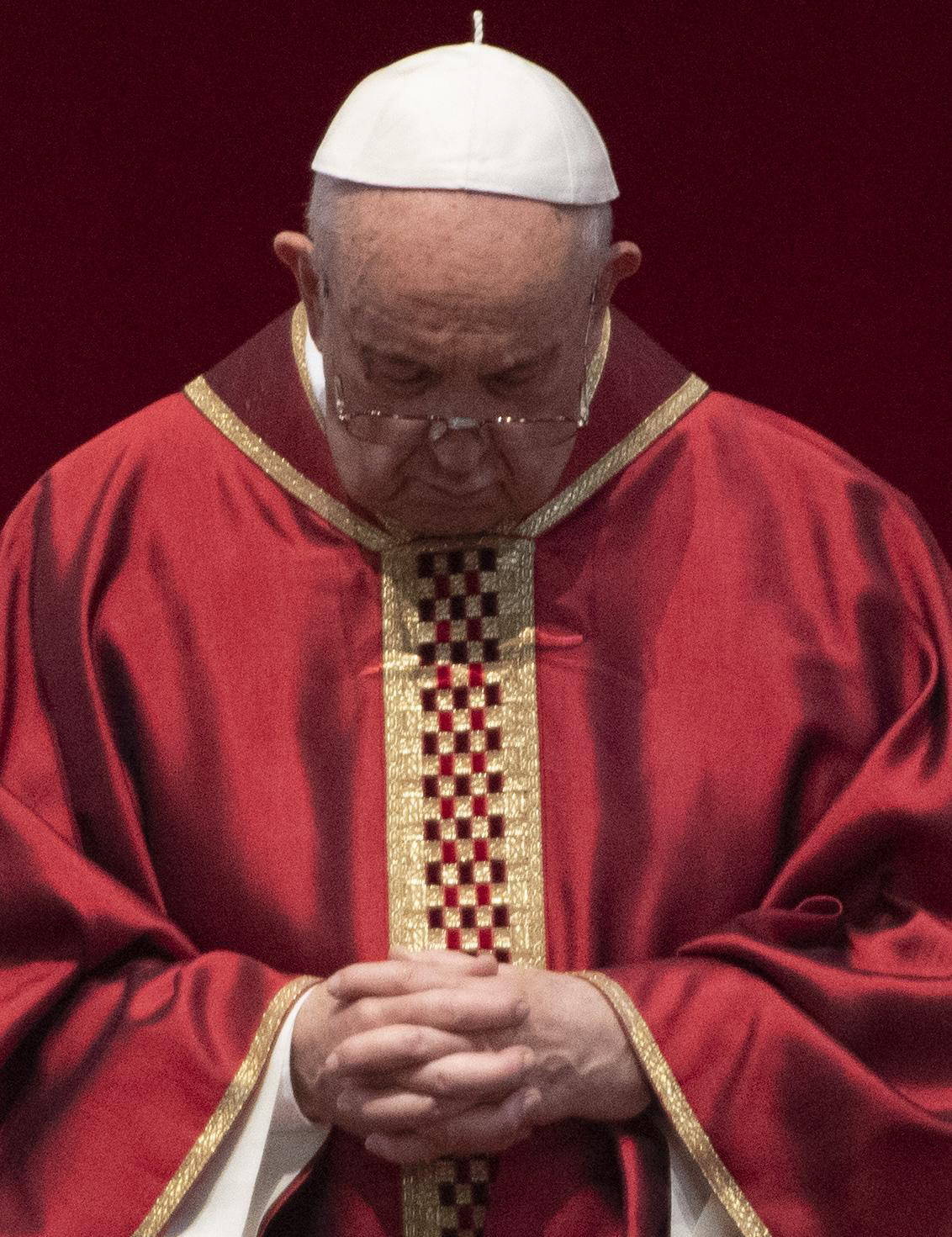
@ PAP/EPA.
Before we recall the historical facts referred to in the title to the old forms of diplomacy, we are going to present the underlying problems characterizing the Holy See and the Church in Poland today.
First, there comes the Vatican and the fact hardly ever mentioned by the media – the state is still the seat of two Popes. Benedict XVI did not cease his activity, which is closely followed by the people interested in the directions in which the Holy See is heading today. As for the evaluation of the current activities of the Bishop of Rome, it is worth noting that the criticism of his lack of clarity in moral matters is growing. The doubts and discussions mentioned here extend to dogmatic issues, which lead to denouncements of the Pope, the undermining of his teachings, and even stir accusations of heresy. Ultimately, these assessments reveal his lack of understanding of Europe’s predicaments, particularly when we bear in mind that he was formed and gained experience in a different cultural context and on a different continent, where, for example, the conundrum of an Islamic onrush is practically non-existent.
As far as the Catholic Church in Poland is concerned, the most obvious thing is a lack of understanding of the threats posed by Catholic patriotism, which often takes the form of nationalism strengthened by religious values. The observation referring to the perception of the representative of Vatican diplomacy in Poland, from the beginning of the renewal of these relations, is still valid. It comes down to the fact that the Apostolic Nuncio seems to be treated as the representative of Poland in the Vatican and not as the Pope’s envoy for the realization of the goals designated by the head of the Church. Ermenegildo Pellegrinetti, the secretary of Achille Ratti, the first Nuncio after Poland had regained its independence, was the author of such an assessment.
As for Poland’s diplomatic representatives in Rome, it may be noticed that they are unable to communicate the message concerning both the specificity of the Catholic Church in Poland in the historical context, as well as the Polish culture itself. The latter is difficult to speak about in a competent way without discussing the issues of religion. Most painful, however, seems to be the lack of control over the messages from Poland heard in the Vatican, which allows, for example, politicians at random to signal to the Pope the problems of the Polish Church, maneuvering the Pope into current political disputes. The facts provided here are directly related to a complete misunderstanding of the new situation that arose in the Vatican after the death of John Paul II. The significant outflow of the Polish clergy from the Vatican to Poland has weakened the possibility of influencing the presentation of current problems relevant to the local Polish Church, and the explanation of the political context in which it has to operate. The limitation of this message concerns mainly ecclesiastical matters, but also refers to the political situation in Poland.
The problem is that during the pontificate of John Paul II, no one needed to explain Polish matters in the Vatican, and after the death of the Polish Pope, no one realized that such a message is perhaps even more necessary than ever. However, while the church structures have their information channels, the Polish representation in the Vatican needed a complete reformulation of its activities, which unfortunately had not done. During the life of the Polish Pope, the representatives of diplomatic services accredited to the Vatican could practically concentrate on organizing further visits of representatives of the authorities to the bishop of Rome, which satisfied political, religious, and probably partly also patriotic aspirations of the visitors. It is regrettable to say that such a form of practising Vatican diplomacy seems to still be desirable, which is mainly due to a complete lack of understanding of the role of the Papacy and the potential of Rome itself in conducting effective diplomacy. For Poland, the aim of the latter is, among other things, to strengthen the positive image of Poland.
Mutual contacts resulting from the relations between the Holy See and Poland are currently burdened with inconveniences related to the lack of understanding of the role of the media and the possibility of subordinating the message to political goals. This is particularly evident in conforming to the pressure exerted by representatives of the mass media in shaping general knowledge on the courses of action and the current standpoint. Moreover, there is a tendency to organize the past based on religious symbols and acts, which can especially be seen on the example of actions leading to beatification and canonization of successive popes of the twentieth century. The latter of the present-day tendencies mentioned here, which due to the canonization of John Paul II also concerns Poland, has its serious consequences.
First of all, each Pope acts based on a political line of his choice, nature, and duration of which are linked to the dynamics of historical change. Canonizing the Pope means canonizing not only a person but also perhaps it can be perceived as a kind of “canonizing” of a specific political line connected with his pontificate. Raised to the altars, the Pope becomes an easy target and at the same time an object of even more lively criticism, which in the past was already the case of Pius X, canonized before the Second Vatican Council. It is now evident that this fate also affects John Paul II. The Polish Pope, a specialist in moral theology, who has placed great emphasis on such issues as the right to life of unborn children or marriage ethics, is being attacked not only for his views in this area, but above all for hiding cases of pedophilia among clergy, including Poles (for instance bishop Józef Wesołowski who died in 2015). Let us note that the calendar of political events almost always dictates the sequence of attacks, so it is not difficult to get the impression that the main objective of the attack is religion itself or, more specifically, the attachment to faith.
The more superficial and emotional the relationship between believers and religion is, the more effective the political attacks become. On the one hand, they are a source of justification for moral conflicts arising in this context in humanity, and on the other, they reduce the reality of faith to the subject of political dispute, where it can be effectively ridiculed and discredited as any political idea.

@ PAP / CEZARY LANGDA
The elimination of Christianity from social life seems to be for many left-wing parties’ supporters not only a guarantee of the fall of the Church (which they loathe) as a structure not subject to full control of the state. This will, in their opinion, make it possible to reach an agreement that transcends the religious divisions more and more apparent in Europe. The assumption of the “liberation” of man from the bonds of religion, which is, in their view, supposed to characterize modern man, would allow bringing closer the increasingly multinational and multiethnic community of people living in the Old Continent. Of course, abandonment of faith should also apply to adherents of other religions, including Islam, for example, but how this goal is to be achieved is not very clear.
One way of explaining this is to acknowledge that the creators of the future of Europe are people who continue to think in the languages traditionally used in Western Europe. Since thinking is carried out in language, the way of understanding the world in languages unknown to European ideologues is entirely alien. The target of the attack is, therefore, what is related to the Christian religion and what seems familiar and understandable. What is more, those who think in these languages have at their disposal a vast oeuvre of theologians and philosophers who, over the centuries, have conducted sophisticated deliberations on faith and religion-related topics – which have often resulted in the rejection of God. There will likely be little discussion of this type of consideration of Islam, not only because a possible attack on the foundations of the faith of its followers would meet with a strong reaction, but also because of a widespread superficial understanding of all that is at the heart of this religion.
A massive problem in the efforts to defend the faith and lead the faithful to salvation is the situation we are dealing with today in the Polish Church. Its leaders, bishops, have allowed for the position under which they have to act according to the dictatorship of the media. As a consequence, their role as spiritual guides is obliterated. This is partly a result of the delayed reaction to the line taken by Pope Francis about the cases of pedophilia in the Church. Furthermore, his teaching and activity, perceived with great mistrust by a part of the Episcopate, clearly overlapped with the conviction rooted in the Polish Church that it is Poland that knows better and reacts more appropriately to the problems faced by the Bishop of Rome. Pope John Paul II, a Polish Pope anticipated for a long time, is, in the conviction of many people, key evidence of this to the present day.
It should be noted that the attitude we are discussing here is mainly due to the specific experience of Christianity in this part of Europe. In Polish culture, the conviction of its leading role in defense of religious and pan-European values has become rooted, finally acquired in the seventeenth century based on aspirations to refer to the Republic of Poland as to a bulwark of Christendom – Antemurale Christianitatis. The attachment to the idea of the militant Church has its effects in the way it acts, where the practices characteristic for the reaction on the battlefield are adapted to the action in the sphere of faith. It is probable that the result was that in solving difficult problems connected with immoral behavior of representatives of the clergy, the Church applied the principle of sacrificing the suffering of victims for the greater good – protecting the faithful from moral corruption. It should be noted that in such an action one can see the awareness of shallow rooting of faith, which, by the way, will be possible to assess soon after the effects of the scandals shaking the Church in Poland. However, we are not dealing here with a more in-depth analysis of this phenomenon but considering the consequences of this situation in relations between the Polish Church, the Polish state, and the Holy See.
Firstly, one should be aware that the slogan Polonia Semper Fidelis long ago ceased to have the meaning it indeed had characterized the vast majority of Poles during the partitions. Poland is becoming more and more of a problem for the Vatican – less exposed since the European Union itself is today not the object of particular interest of the Pope responsible for the Church all over the world. The role of Christian Poland as the savior of Europe certainly strengthens the idea of a local national church, but from the perspective of the Holy See, which began centralizing the Roman Curia with Pius X, it is not only incomprehensible but above all contradictory to this agenda. It seems that the Church in Poland must as soon as possible do its history and diplomacy homework and start its mission in accordance with the expectations coming from the heart of Christianity. The active participation of its structures in supporting the faithful will give better results in the pursuit of national unity than supporting patriotic or national ideas. Ultimately, it will also help to spread Christian ideas and achieve the goals of both the Church community and those political forces recognizing the positive role of Christian faith, tradition, and roots in Europe.
In order to do that, it would be appropriate to treat the Vatican and Rome as places of effective diplomatic influence in terms of explaining the role of Poland in Europe. Making it a national perspective will always be burdened with the current political dispute and the conflicts that are constantly arising in relations between the Member States of the European Union – where there is a sharp financial and economic dispute. In this struggle, religion, values, and ideas are and will continue to play the role of the means to obtain immediate benefits in the form of power, influence, and money. Therefore, it is not Brussels, Berlin, Paris or Warsaw, but the Vatican and Rome that can invariably function as the center of the debate on the ideological future of Europe.

@ EPA/ALESSANDRO DI MEO @ PAP/EPA
The weakening of the role of the Catholic Church, the spiritual and organizational center of which is now the Vatican, certainly reduced the once established conviction that it is Rome that is a place of special importance for diplomacy – and thus a specific promotion of the position and culture of nations belonging to the community referring in Europe to common roots. There are countless examples of this – ceremonial entrances, canonizations of national saints, showy funerals or other solemn ceremonies held in the Eternal City, which are known from the past. It is worth recalling at least one such event, which will link the deliberations conducted here with the title proposed at the beginning.
On November 27, 1633, a pageant of several thousand people, 300 of whom belonged to the retinue of Jerzy Ossoliński, who came to Pope Urban VIII on behalf of the Polish King Wladyslaw IV with an obedience message, drove to Rome through the gate of Porta del Popolo. This arrival is remembered not only with the exceptional splendor that the artist Stefano Della Bell captured in his etchings, but also the golden horseshoes with which the Polish diplomat’s horse was shoed before entering the eternal city. These temporarily fixed horseshoes were left on the pavement of Roman streets and for a long time remained a symbol of the power of the Polish state[1]. The most important act, however, was the celebratory speech itself, given in Latin by the Polish Member of Parliament, which impressed the Pope and was immediately translated into French, Spanish, and German as a model for future orators facing the Bishop of Rome[2]. It is hardly surprising then that Ossoliński’s message is considered to be more than successful, and not only in the short-term promotion of the importance of the Polish–Lithuanian Commonwealth.
Apart from the ephemeral memory after the ceremonial entrance, the permanent trace of the presence of the Polish diplomat was a set of matters that were presented to the Pope in order to obtain his consent. Among them, it is worth noting that a separate breviary office (Officium gratiarum actionis pro victoria ex Turcis obtenta anno 1621) was established in connection with the victory of the Polish army over the Turkish army in the Battle of Khotyn in 1621[3]. In the history of the Church until that moment, only the victory of the combined Catholic forces in the naval battle of Lepanto deserved such a distinction. Celebrating the victories of the Polish army, included in the liturgical calendar, was an act that gave recognition to the event, comparable to today’s appearance in the headlines of the most important newspapers in the world – and it should be added that this appearance would have to be repeated every year. The examples given here from the period of the power of the Republic of Poland show the value for Polish diplomacy of communicating with the world through Rome. It also shows that the center of Christianity was treated as a kind of “center of command” not only in spiritual but also in military matters. This was, of course, justified by the fact that the Papal States once took an active part in military missions. It should be remembered that one such mission provoked an Italian Jesuit Antoni Possevino to write a book for the army, which was later used by Piotr Skarga to write a catechism for soldiers – Żołnierskie nabożeństwo “Soldier’s Service” (first edition – Krakow 1606). This book accompanied Polish soldiers for over two centuries, and the texts of its prayers can also be found in contemporary prayer books prepared for the army[4].
Even when the Papal States collapsed in 1870, the seat of the Bishop of Rome was a point of reference and a source of support for Poles. Testimony would be the national pilgrimages to Rome at the end of the 19th century, during which the desire to regain freedom and connectivity were manifested, despite the divisions between the partitioning states. The Pope was also made a trustee of the independence issue and a kind of guarantor of historical truth. Meanwhile, it has not been forgotten that the Holy See constitutes an invariably important point of reference in the conduct of international politics.
Therefore, the Vatican at the beginning of the last century was a place where an event that significantly influenced the fate of the Church in the world and Poland happened. On August 2, 1903, the Bishop of Krakow, Jan Maurycy Puzyna, issued the last veto on the conclave in the history of the Church, which blocked the assumption of the Holy See by Cardinal Mariano Rampolla del Tindaro. Eventually, two days later, Pius X became Pope, and on May 29, 1954, he was declared a saint of the Catholic Church. The blocking of Rampolla, who had excellent relations with Russian diplomacy, has supported the faithful of the Roman Catholic Church in the territory of the Russian partition – subjected to pressure from Orthodox Russia, which was reluctant to accept the faith that consolidated Poles within the framework of national, linguistic and cultural values[5].

In this short study, we decided not to include the great importance for Polish-Vatican relations of the election as Pope of the first apostolic nuncio in Poland after Achilles Ratti’s independence as Pope, a subject which is widely discussed in a bilingual volume recently published in the Vatican. Also, the figure of John Paul II would require a separate analysis[6]. In the context of the deliberations conducted here, it seems that it is necessary to recall facts closer to us in time – on Friday, December 6, 2012, the day of the Epiphany, Pope Benedict XVI uttered significant words, which still seem to be valid today: “la civiltà occidentale sembra avere smarrito l’orientamento, naviga a vista‘ [it seems that the Western Civilization has lost its orientation and is now navigating using its eyesight]. In his speech, the Pope wished to stress that only the Church can see through the fog in which Europe is lost.
The observation of the Bishop of Rome seems to be accurate, but it is especially true of those countries which have been in contact with the problems of the conflict of cultures in the background, burdened with the experience of fighting, through other nations or only through the products of a given culture. Franco Cardini in the introduction to Daga Tessore[7]‘s book The Mystic of War (Mistica della guerra) rightly pointed out that the radical rejection of violence as a means of conflict resolution after World War II, which was the result of the exceptionally traumatic experiences of the people involved in the conflict, had unpredictable consequences. It is about rejecting the idea of fighting deeply rooted in culture and which in Christianity is of great importance – in the context of the spiritual struggle.
Looking at the history of the Polish nation and Polish culture, we realize that this assessment applies primarily to those countries and nations in which the fight was not so crucial in the process of preserving cultural and religious identity. If we look at the Balkan countries, it is hardly surprising that religious conflicts remain one of the most important elements of its regional policy – because of permanent conflict with the Ottoman Empire or its very existence within its borders. Therefore, it is hardly surprising that countries such as Hungary or Romania are hesitant to migration because a notion from the collective cultural experience of these countries includes that Islam can only be stopped by force. There is a reference here to religion, not to separate states, because the boundaries of division have been recognized in this way for centuries. The experience in question is not alien to Poland, which for centuries has been consolidating its image as a bulwark of Christianity. The problem is that while in the past, this attitude was supported by Rome, which seemed to be at the forefront of the crusade against the forces threatening Christian Europe, the situation has now changed completely.
The Vatican, whose strength lies in the constant reform of its structures and its adaptation to the changing world, which makes it the only institution with such a long, uninterrupted history, seems to have adopted the concept of a Europe without borders. This idea is much easier to accept by the Church – it treats its structures only as organizational support of the political models of the states in which it operates. And although political changes sometimes lead to disputes over boundaries for dioceses, which also occurred after the territorial changes resulting from the last war, it is possible to find an agreement relatively quickly, because the primary goal is to provide spiritual care for the faithful. It turns out, however, that the nations defending their borders for centuries and, what is more, considering themselves to being a part of a fortified camp – such as Poland, which is close to the idea of a besieged fortress – find it difficult to understand that the solution to the problem lies in understanding their own limitations resulting from attitudes fixed in the cultural context of education, characteristic of a given country. The point is that in the past it was much easier, and probably still is, to fight a real enemy, and it is much more challenging to undertake a spiritual fight so close to the moral and spiritual path of development that Christianity proposes.
Finally, it is essential to once again pay attention to Jerzy Ossoliński’s speech, mentioned in the introduction, which, although delivered in the 17th century, ends in a way that partly reflects the character of Polish religiousness and spirituality:
“[…] the first place belongs to Poland, which, just as it succumbs to its rulers, voluntarily submits to religion and holiness – not by violence and not forced. This Sarmatia, inaccessible to Roman weapons, succumbs today to the Roman faith. Once the hostess of so many superstitions, today it is the handmaid of the Only God; the most fervent guardian of freedom, never touched by oppression; today it yields to Roman bishops and the Holy See. Poland, I say, which alone does not give birth to monsters in the world. No heresy, no separation from it has come out, and if there are some infected by the disease of neighboring nations, they are soon cut off from all the nobility by the strict laws of our punishment and the eternal infamy of their stigma. […] passion in faith is inborn in the Polish nation; hence this respect for the bishops, who gave way to the first places in the Senate and to whom the most important matters of the Republic of Poland were devoted. I leave aside the religious edifices and decoration of their generosity, and I will keep silent that the earnest service is there and the whole world unanimously recognizes it.
However, the greatness of the mind of this nation is seen, and from this very thing it is known that for so many centuries it has been against the wild and cruel Christian enemies, it does not yield to them. Ottoman crescents, which have endured so many powerful armies, so many defensive cities, so many inaccessible glens, so many clever rivers, so many Christian settlements, and destroyed so many of them, are being stopped by Poles. It is one Republic’s merit that the Tatar acrimony that has not spilled all over Europe so far. Muscovites, who are Christians only by name, but their conduct and customs worse than of the rest of the barbarians – we have won them so many times, oppressed them and finally turned the most beautiful part of their countries into our province.
It was all the greatest merit of the mind and the Roman virtue. We rewarded the ancient city with the sternness of our ancestors when we adopted its laws and customs. Here is the source of our freedom, justice, and law; here is the source of the examples of our valiant rule. Nothing caressed or effeminate in our customs and outfits. Children’s youth do not spend their years at lutes and dances, but in the camp; the nobility is not ashamed of farming, they protect itself from the city’s pleasures, which weaken the militant spirit. People of elevated hearts live in low huts; they do not know fortified castles, drawbridges, because they feel safe with their fundamental laws and the innocence of life. […] So raise, the Greatest Pope, Your right hand, with which you keep this world, moved by the storm, and the falling truth, for the happiness of our age. Strengthen the son of Your endeavor with a divine blessing. Other Christian lords will be awakened with this example, and, having abandoned the harmful fame of their envy, will turn their weapons to the place of the plunderer, for long crying out for vengeance.
Truly, my King, like now himself, subjects his kingdom and his weapon to Your Holiness and declares respect and fidelity to the Holy See. He promises, and he will always be ready to follow your guidance, to follow the Christian banners under your command – not only to march behind them but to overtake them.”
And although the last words of Ossoliński’s speech sound a bit disturbing, the discussion can be concluded with a question whether Poland can allow itself to be a country in which religious issues function on different levels of communication; to abandon Rome and the Vatican? This question will be justified by the history still present in the salons of the Vatican and referring to the visit of the Polish deputation in the ’90s. John Paul II irritated a little by the acts of homage that he received, was said to address his compatriots from Poland: the Holy See expects from the representatives of diplomacy competence, not devotion.
Find more:
Special Report: The Warsaw Institute Review at the Western Balkans Summit: Special Report
Newest article: Visegrad Four Defense Cooperation: Years of Missed Opportunities
Strategy Duologues: The Warsaw Institute in the Embassy of the Republic of Indonesia
[1] Arturo Cronia, Festi polacchi in Italia, in: Relazioni tra Padova e la Polonia. Studi in onore dell’ Università di Cracovia nel VI centenario della sua fondazione, Padova 1964, p. 10 (Contributi alla Storia dell’ Universita di Padova, vol.1).
[2] Maria Barłowska, Jerzy Ossoliński – orator polskiego baroku, Katowice 2000.
[3] Mirosław Lenart, Miles pius et iustus. Żołnierz chrześcijański katolickiej wiary w kulturze i piśmiennictwie dawnej Rzeczypospolitej (XVI–XVIII w.), Warsaw 2009, pp. 179–185.
[4] Mirosław Lenart, Podręcznik życia wojskowego i religijnego Piotra Skargi, in: “Kto ojczyźnie swej służy sam sobie służy”. Pamiątka obchodów czterechsetlecia śmierci Piotra Skargi, ed. Mirosław Lenart, Opole 2014, pp. 45–56 (Opera Extraordinaria, 4).
[5] See vol. edited by the author: Genealogia dei desideri. Pio X nella memoria del popolo dell’Alta Slesia a cura di Miroslaw Lenart e Gianpaolo Romanato / ed. Mirosław Lenart, Gianpaolo Romanato, Libreria Editrice Vaticana: Città del Vaticano, 2015 (Pontificio Comitato di Scienze Storiche, 38; Atti e Documenti Opera extraordinaria, 5.
[6] Nunzio in una terra di frontiera. Achille Ratti, poi Pio XI, in Polonia (1918–1921) a cura di / ed. Qurino Alessandro Bortolato, Mirosław Lenart, LEV: Città del Vaticano 2017 (Pontificio Comitato di Scienze Storiche – Atti e Documenti 47; Opera Extraordinaria 10).
[7] Dag Tessore, La mistica della guerra. Spiritualita delle armi nel Cristianesimo e nell ‘Islam, prefazione di Franco Cardini, Roma: Fazi, 2003.

